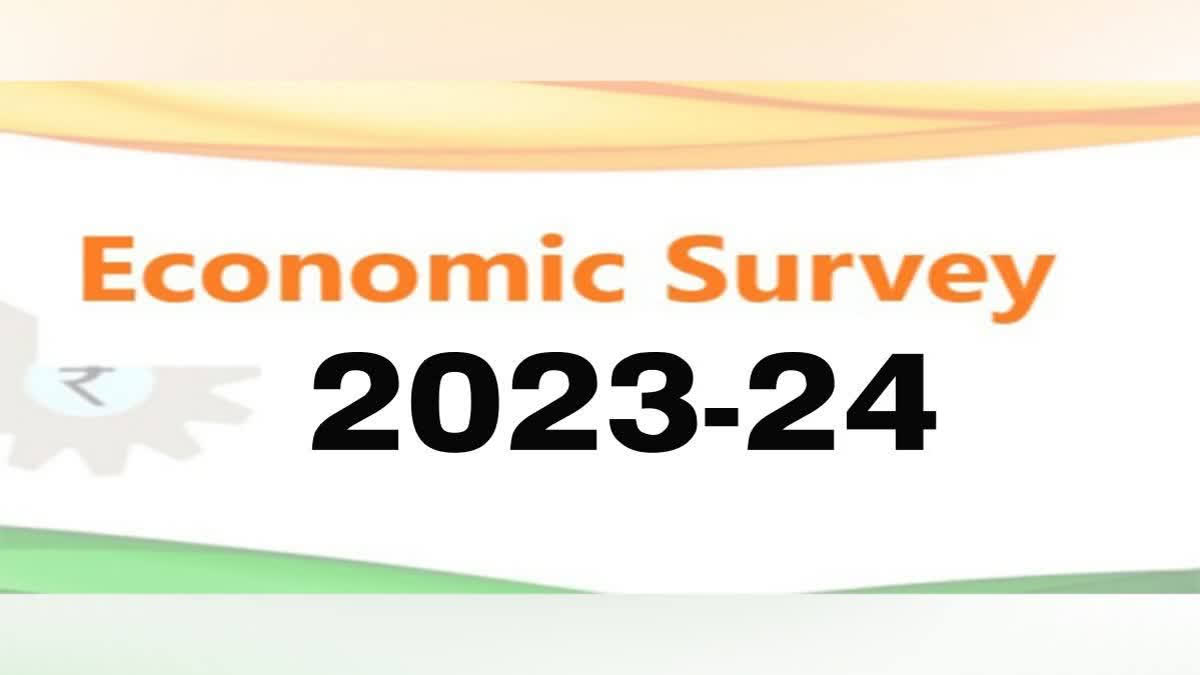New Delhi: India’s energy needs are expected to grow 2 to 2.5 times by 2047 to meet a growing economy's development priorities and aspirations, revealed the economic survey 2023-24 tabled by Finance Minister Nirmala Sitharaman in Parliament on Monday.
"Considering that resources are limited, the pace of energy transition would need to factor in alternative demands on the resources for improving resilience to climate change and for sustained social and economic development," it said. Stating that India has made significant progress on climate action in terms of an increase in its renewable energy capacity and improvement in energy efficiency, the survey said that as of May 31, 2024, the share of non-fossil sources in the installed electricity generation capacity has reached 45.4 per cent.
"Furthermore, the country has reduced the emission intensity of its GDP from 2005 levels by 33 per cent in 2019," the survey said. It said that expanding renewable energy and clean fuels will increase demand for land and water. "Most renewables are land-intensive and demand the highest land use requirements among the different energy sources. Furthermore, the expansion of renewable energy requires battery storage technologies, which in turn require the availability of critical minerals. The source of such minerals is, however, geographically concentrated," the report said.
Highlighting India's initiative of recognising the importance of energy efficiency measures in accelerating clean energy transitions while supporting energy security, the report said that the country has taken many measures to improve the business environment and catalyse a greater quantum of resources.
"The government undertook the issue of sovereign green bonds worth Rs 16,000 crore in January-February 2023 to raise proceeds for public sector projects that would contribute to the efforts to reduce the intensity of the economy's emissions, followed by Rs 20,000 crore raised through sovereign green bonds in October-December 2023," it said.
The Government of India’s Mission LiFE is envisaged as a mass movement to address climate change and foster sustainable living based on conservation and moderation principles. The government supports voluntary environmental actions such as the Green Credit Programme (GCP), which incentivises individuals, communities, private sector industries and companies to participate in environment-positive activities by offering green credits as rewards.
"India has led several international initiatives towards climate change mitigation and building resilience. The International Solar Alliance (ISA), One World, One Sun, One Grid (OSOWOG), the Coalition for Disaster Resilient Infrastructure (CDRI), the Infrastructure for Resilient Island States’ (IRIS) and the Leadership Group for Industry Transition (LeadIT) are some of such important examples," the survey highlighted.
Highlighting that India must look at the problem of climate change through its lens, the economic survey said, "India, despite significant strides in climate action, often faces criticism for not aligning with Western solutions. This criticism stems from a lack of appreciation for India's unique social and cultural fabric, which is already rich with sustainable development ideas."
Stating that adopting the practices of the West could prove to be disastrous for India where culture, economy and societal norms are already intertwined with the environment, the economic survey further stated that India’s ethos emphasises a harmonious relationship with nature, offering sustainable solutions to problems plaguing market societies.
"India should learn, understand and adopt its rooted sustainable practices and embrace others only when they suit its needs and are sustainable, environmentally and climatically. That way, Indians will address their wants without letting them hurt nature," the survey said.
Read more: Economic Survey 2024 Tabled In Parliament: What Does It Comprise, Who Prepares It And Why



